This document summarizes schools of thought in second language learning from the 1940s to 2000s. It describes how behaviorism and structural linguistics were dominant in the 1940s-1950s, focusing only on observable behaviors and language units. In the 1960s, cognitive psychology and transformational-generative linguistics emerged, considering mental processes, meaning, and innate language abilities. Finally, constructivism developed in the 1980s-2000s, emphasizing learners' active role in constructing understanding through individual cognitive processes and social interaction. The document concludes that no single theory can fully explain language learning.
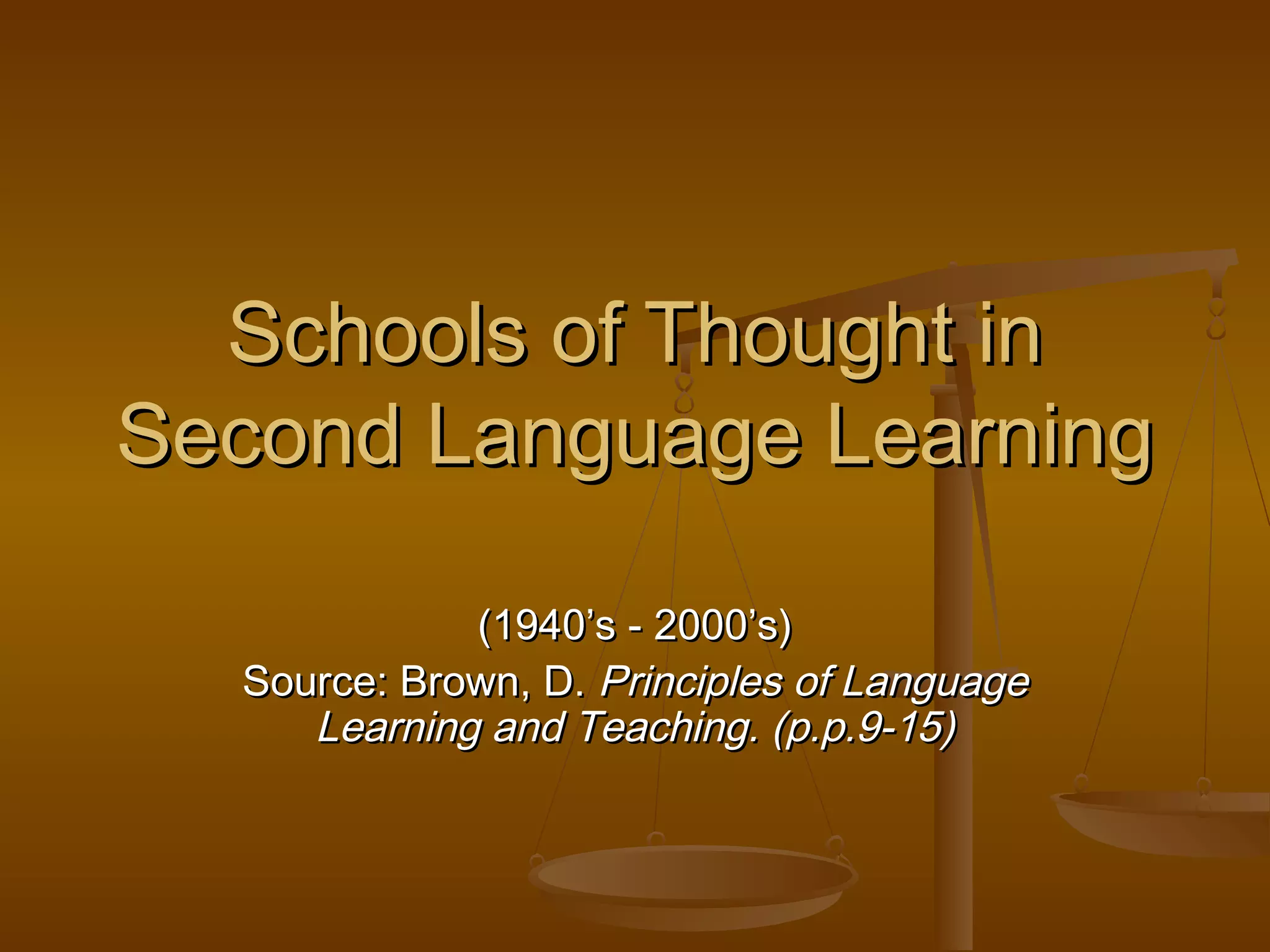
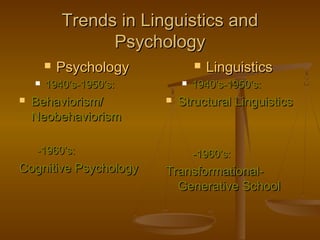
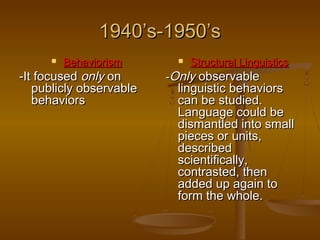
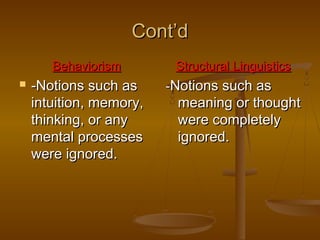
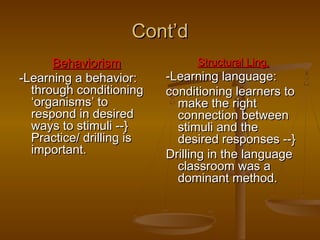
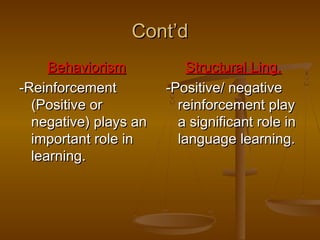
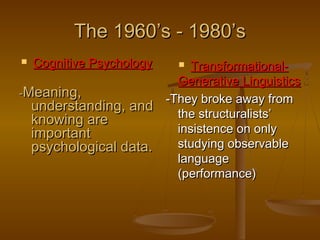
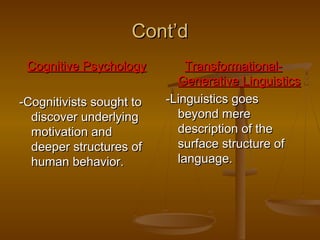
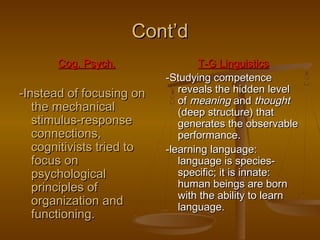
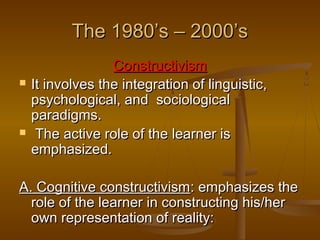
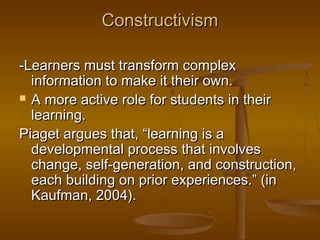
![Constructivism
B. Social Constructivism: emphasizes the
importance of social interaction and
cooperative learning in constructing
cognitive and emotional images of reality.
Language learning is a result of thinking
and meaning-making that is “socially
constructed and emerges out of [learners’]
social interactions with the environment.”
(Brown, p. 13)](https://image.slidesharecdn.com/schoolsofthoughtinsecondlanguagelearning-140228102353-phpapp02/85/Schools-of-thought-in-second-language-learning-12-320.jpg)
